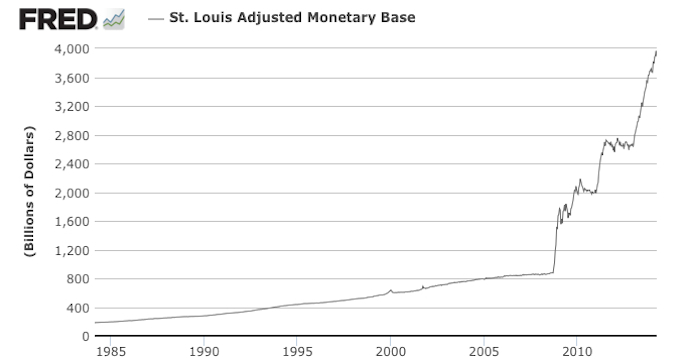Growth Freezes Up as U.S. Business Investment Slumps: Economy:
How cold was it?
It was so cold this winter that business executives' brains partially froze, so they were unable to execute orders for equipment and new plants that they so desperately wanted to make.
Apr 30, 2014 1:18 PM ET
Bloomberg News

Ford CEO Alan Mullaly setting off through the snow to order auto parts and accessories. 12, 2014.
Gross domestic product grew at a 0.1 percent annualized rate from January through March, compared with a 2.6 percent gain in the prior quarter, figures from the Commerce Department showed today in Washington. American consumers were a lone bright spot as households spent more to heat their homes and access health care.
The pullback in growth came as snow blanketed much of the eastern half of the country, keeping shoppers from stores, preventing builders from breaking ground and raising costs for companies including United Parcel Service Inc. (UPS) Another report today showing a surge in regional manufacturing this month adds to data on retail sales, production and employment that signal a rebound is under way as temperatures warm.












